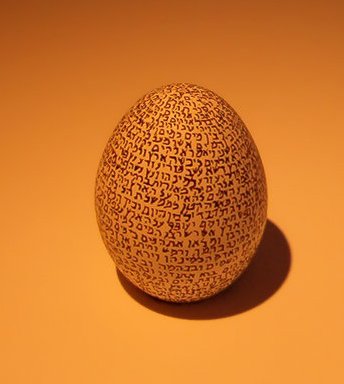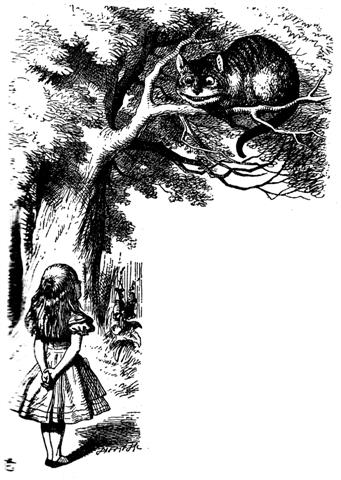There were 21 sorts of 'all kinds of things' brought onboard: ... Teke said to Oti, 'Go and take the hauhau tree, the paper mulberry tree, rushes, tavari plants, uku koko grass, riku ferns, ngaoho plants, the toromiro tree, hiki kioe plants (Cyperus vegetus), the sandalwood tree, harahara plants, pua nakonako plants, nehenehe ferns, hua taru grass, poporo plants, bottle gourds (ipu ngutu), kohe plants, kavakava atua ferns, fragrant tuere heu grass, tureme grass (Dichelachne sciurea), matie grass, and the two kinds of cockroaches makere and hata.' Oti and all his assistants went and took the hauhau tree with them. All kinds of things [te huru o te mee] (i.e., plants) and insects [?] were taken along ... [E:69]
... Oti and all his assistants went and took the hauhau tree with them. All kinds of things [te huru o te mee] (i.e., plants) and insects [?] were taken along. [E:68] Oti said to his assistants [toona titiro], 'Take all the things (i.e., the plants) on board the canoe and leave them there!' The men took [he mau te tangata] them, arrived, and left all of them on board the canoe ... [E:69] This description was repeated twice and in order for the reader not to miss this fact the page numbers in Manuscript E were aslo repeated here. Twice 21 = 42 right ascension days = 6 weeks.
... They tightly swathed the broken body in linen bandages, and when they performed over it the rites that thereafter were to be continued in Egypt in the ceremonial burial of kings, Isis fanned the corpse with her wings and Osiris revived, to become the ruler of the dead. He now sits majestically in the underworld, in the Hall of the Two Truths, assisted by forty-two assessors, one from each of the principal districts of Egypt; and there he judges the souls of the dead ... We could perhaps also count 21 + 42 = 63 as an allusion (or reference) to the position immediately after the last item mamari kiakia at the Egg (Beid):
... The star Beid (the Egg in the Eridanus River, He Mamari Kiakia) was the last one to be mentioned - and notably it was given number 20 instead of the expected 20 + 1 ... ... By adding 21 (sweet potato variants) to 41 (Bharani) we should be able to reach right ascension day *62 at the time of rongorongo. And in the G text we can indeed see that Gb8-28 (corresponding to 20 he tua tea. - with a dot at the end of the name) is similar to Gb8-29 (20 he mamari kiakia.). Potatoes are formed like eggs, and therefore also they should be counted in groups of 20 (scores). The idea of arranging the sweet potato variant 20 he mamari kia as number 20 + 1, i.e. separately from the first score, was surely to give a strong impuls for attention. And we can then understand it was in order to point at the Egg in the Eridanus river. Or rather to the pair of eggs (ο¹ and ο²), twins ...
From Beid (*62) to he ipu ngutu (*104) there were 42 right ascension days. And evidently the closing item in any list should be scrutinized closely.
As to the drinking gourd it surely ought to illustrate the return to life after having been half-dead from thirst:
*104 (he ipu ngutu a Oti.) - *62 (he mamari kiakia. a Bau a Oti.) = *41 (41 he ravi pako a Maeha. a Teke. [E:64]).
... Then the big Fish did swallow him,
and he had done acts worthy of blame.
But We cast him forth on the naked shore
in a state of sickness,
... The state of the tree loomed large in their thoughts, because it came about at the same time the head of One Hunaphu was put in the fork. The Xibalbans said among themselves: 'No one is to pick the fruit, nor is anyone to go beneath the tree', they said. They restricted themselves, all of Xibalba held back. It isn't clear which is the head of One Hunaphu; now it's exactly the same as the fruit of the tree. Calabash came to be its name, and much was said about it. Hipu. Calabash, shell, cup, jug, goblet, pot, plate, vase, bowl, any such receptacle; hipu hiva, melon, bottle; hipu takatore, vessel; hipu unuvai, drinking glass. P Mgv.: ipu, calabash, gourd for carrying liquids. Mq.: ipu, all sorts of small vases, shell, bowl, receptacle, coconut shell. Ta.: ipu, calabash, cup, receptacle. Churchill. A maiden heard about it, and here we shall tell of her arrival. And here is the account of a maiden, the daughter of a lord named Blood Gatherer. And this is when a maiden heard of it, the daughter of a lord. Blood Gatherer is the name of her father, and Blood Moon is the name of the maiden. And when he heard the account of the fruit of the tree, her father retold it. And she was amazed at the account: I'm not acquainted with that tree they talk about. It's fruit is truly sweet! they say, I hear, she said. Next, she went all alone and arrived where the tree stood. It stood at the Place of Ball Game Sacrifice. What? Well! What's the fruit of this tree? Shouldn't this tree bear something sweet? They shouldn't die, they shouldn't be wasted. Should I pick one? said the maiden. And then the bone spoke; it was there in the fork of the tree: Why do you want a mere bone, a round thing in the branches of a tree? said the head of One Hunaphu when it spoke to the maiden. You don't want it, she was told. I do want it, said the maiden. Very well. Stretch out your right hand here, so I can see it, said the bone. Yes, said the maiden. She stretched out her right hand, up there in front of the bone. And then the bone spit out its saliva, which landed squarely in the hand of the maiden ...
|
||||||||||||||||||||||||||||||||||||||||||||||||||||||||||||||||||||||||||||||||||||||||||||||||||||||||||||||||||||||||||||||||||||||||||||||||||||||||||||||||||||||||||||||||||||||||||||||||




